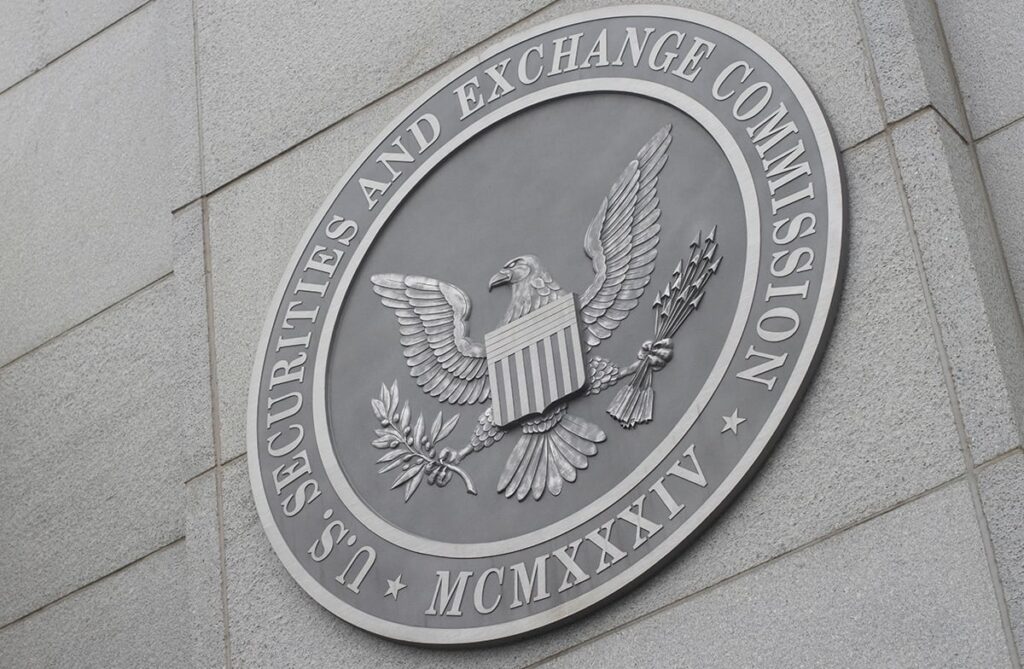TLDR
- SEC delays NMS compliance deadlines, providing crypto exchanges more time to comply.
- Crypto exchanges have a legal advantage thanks to the SEC’s delay in enforcement action.
- The SEC’s exoneration in the NMS case strengthens the due process arguments for crypto.
- The delay in stock market rules sets a precedent for crypto exchanges’ legal defenses.
The United States Securities and Exchange Commission (SEC) recently granted an extension of compliance deadlines for the NMS regulations, which affect the equity market. This delay, which extends into 2026, could have significant legal consequences for crypto exchanges such as Coinbase, Kraken and Binance. These exchanges, faced with SEC enforcement actions, now have a new line of defense based on the SEC’s own actions, potentially strengthening their legal position in court.
SEC Gives Stock Markets a Delay
On October 31, 2025, the SEC issued a derogation order delaying the deadlines for compliance with certain provisions of the NMS Regulations. These regulations govern the U.S. securities markets, including rules regarding minimum price increases, access fees, and transparency.
The deadline was granted until February and November 2026, citing an ongoing judicial review and funding shortfalls within the agency. According to SEC Chairman Paul Atkins, the relief was essential to “facilitate the orderly functioning of the market” amid regulatory challenges and a partial government shutdown.
SEC decision impacts traditional stock exchanges, including Nasdaq and New York Stock Exchange (NYSE). However, the broader significance lies in how this order could be applied to crypto exchanges subject to SEC review. Cryptocurrency exchanges have long argued that they need clearer rules and more time before being subject to securities regulation. This delay now serves as a precedent for these platforms, providing a basis for requesting similar delays in their cases.
A new argument for crypto defendants
For crypto platforms like Kraken, Binance and Coinbase, the SEC delay offers a new argument in their ongoing legal battles. These exchanges have consistently raised “fair notice” and due process defenses to SEC enforcement actions.
Their central argument is that SECOND cannot fairly enforce securities laws without providing clear, finalized rules for the crypto market. They say the lack of specific guidelines leaves them in a state of uncertainty, making it difficult to comply with regulations.
The SEC’s decision to delay enforcement of the rules for the securities markets, due to similar concerns about regulatory uncertainty, reflects arguments made by the crypto defendants. These platforms claim that enforcement action for non-compliance with unclear or incomplete regulations would violate their constitutional rights to due process. By recognizing the need for delays in traditional markets, the SEC has now given crypto exchanges an additional legal tool to challenge enforcement actions in court.
Legal precedent set for crypto cases
The SEC’s exemption for securities markets sets a precedent that crypto platforms can use in their defense. The order recognizes that enforcing rules without clear rules creates confusion and disorder. This aligns with legal arguments made by cryptocurrency exchanges, which have faced lawsuits for operating unregistered exchanges and dealing in digital assets under ambiguous rules.
For example, Kraken and Bittrex used similar arguments in their defense, claiming that they were not adequately informed on how to apply the law. DRY rules for cryptography activities. In some cases, judges have allowed these defenses, highlighting the lack of clear regulatory guidance. The SEC’s delay in regulating securities markets bolsters this defense by showing that even traditional financial institutions need more time to comply when the rules are uncertain.
What happens next for crypto platforms?
With the recent SEC order providing relief to traditional exchanges, crypto exchanges are likely to use this development in their legal arguments. As the SEC has recognized that a delay in compliance may be necessary when regulatory frameworks are still evolving, crypto lawyers will likely cite this reasoning in motions for stay, injunction, and appeal. This strategy could buy more time for trading while the SEC works to finalize crypto-specific regulations.
Cryptocurrency exchanges should also continue to push for more clarity on how they can comply with U.S. securities laws. The SEC has yet to finalize rules governing the trading and custody of digital assets, leaving crypto platforms in a state of legal uncertainty. The recent delay in securities market regulation, however, provides an opportunity for these platforms to argue for additional time and regulatory clarity, which could influence the outcome of current and future legal battles.




